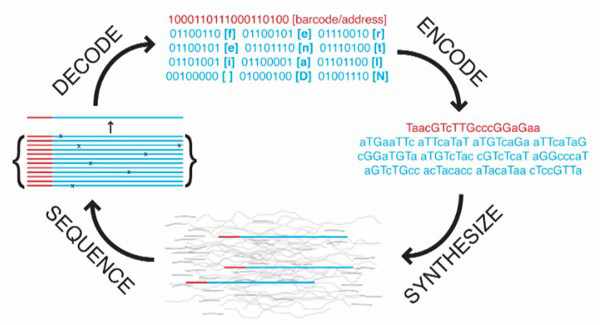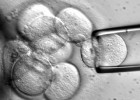DNA Storage Cracked: Harvard Stores 704TB of Data in a Gram of DNA
Imagine an equivalent of 14,000 50-gigabyte blue-ray discs or 233 3TB hard drives, fitted at the tip of your pinky. DNA storage can make this possible. A recent breakthrough from Harvard’s Wyss Institute successfully stored 704 terabytes (TB) in a gram of DNA. It works by treating an organic DNA as a regular digital storage device. With strands of DNA that can hold 96 bits, synthesized, with each of the bases (TGAC) representing a binary value (T and G = 1, A and C = 0).
Led by George Church, bio-engineer, and Sriram Ksuri, geneticists. The team is able to store 96 bits of data into a single DNA strand by treating each base (T, G, A & C) with a binary value. The genetic sequence is then synthesized by a microfluidic chip that matches up that sequence with its position in a relevant data set, even when all the DNA strands are out of order.
DNA storage has long been thought to have very good potential as storage medium. But it is only in recent advances in microfluidics, where DNA can by easily synthesized. This paved way to DNA storage research.
There are three main reasons why researchers have been looking into DNA storage possibilities. DNAs are are extremely dense, allowing date storage of one bit per base, a base is only a few atoms large. It is also volumetric and incredibly stable, DNA can survive for hundreds to thousands of years in your home storage, or even on a garage. Unlike other storage mediums that can possibly store large amount of data, needs to be kept in controlled environments like vacuums.
Currently, the DNA storage processing time is still too slow. But it is still considered fast enough for very long term archival storage.
source: extremetech, harvard






Pingback: Kubinis milimetras DNR leidžia saugoti 704 TB | FACEIT.LT